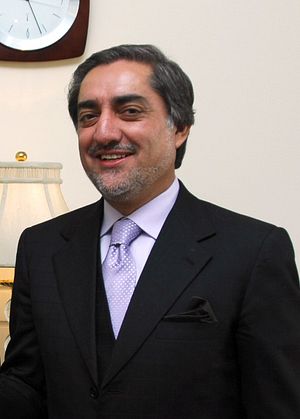A few curated links for the end of the week covering developments in South Asia:
Abdullah Abdullah, the pro-western front-runner in Afghanistan presidential elections, said he escaped an attempted assassination on Friday as his campaign motorcade hit a mine in Kabul. The assassination attempt comes just nine days before Afghanistan’s scheduled presidential run-off vote, in which Afghan voters will choose between Abdullah and his opponent Ashraf Ghani to elect Afghanistan’s next president. “A few minutes ago, when we left a campaign rally our convoy was hit by a mine,” he told an election rally according to a broadcast on Afghan television. “We condemn the attack on respected presidential candidate Dr. Abdullah Abdullah,” Ghani, Abdullah’s opponent and a former World Bank economist, said on Twitter. Ghani added: “This is the act of the enemies of Afghanistan to disrupt the democratic process in the country.”
The controversy from Bowe Bergdahl’s release last weekend has not abated one bit as Obama administration officials continue to defend the prisoner swap (particularly as allegations rose about Bergdahl possibly having deserted his post). The administration released five senior Taliban officials from detention in Guantanamo Bay in exchange for Bergdahl. A Washington Post investigation explores the conditions that underlay the release of the five men from U.S. captivity. President Obama allegedly had the Emir of Qatar’s ear on the enforcement of the conditions and thus felt confident to move forward with the prisoner swap. According to the Washington Post, the men are prohibited from militant incitement, traveling, and fund-raising for a period of one year. “It’s possible someone will see them on the streets of Qatar,” notes Marie Harf, a State Department spokesperson, adding that “those types of activities don’t threaten [U.S.] national security interests, and that’s the standard here about substantially mitigating the threat that they will pose.” Furthermore, Peter Bergen and Bailey Cahall, writing for CNN, explain that the recidivism rate for Guantanamo detainees upon release is significantly lower than commonly perceived. Of 620 released detainees, 15 have been engaged in attacks against the United States since release.
Writing for foreign policy, Michael Kugelman asks “Will Karachi Become the Next Waziristan?” As U.S. troops prepare to withdraw from Afghanistan, Pakistan’s internal violence could spread into cities like Karachi that have been relatively less violent compared to the turbulent tribal regions of the country: “The drawdown is likely to deepen instability not only in Afghanistan and Pakistan’s tribal belt, but also — thanks to the dynamics of Pakistan’s rapid urbanization — in Pakistan’s teeming cities.”
































